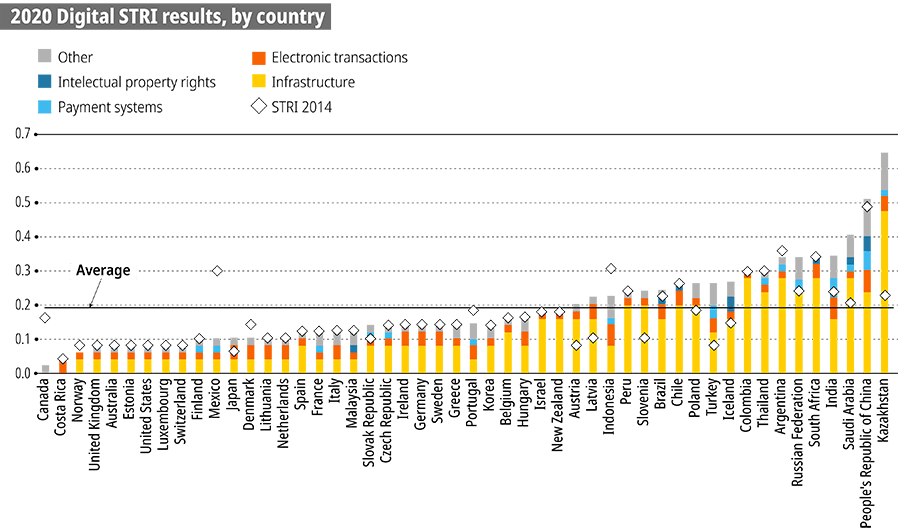Issue
Lower costs and increasing access to digital trade are key factors in building resilience to crisis situations. They enable firms and individuals to stay connected to markets, jobs, and each other. Access to the products that underpin digital infrastructure is therefore increasingly critical for all economic activity and for international trade. COVID-19 clearly demonstrated this as digital enablers such as computers, smartphones, network equipment, and telecommunications services played a key role in alleviating the social and economic consequences of confinement and social-distancing measures. They allowed people to shop online, cushioning some of the economic impacts of health-related restrictions, and enabled remote working and teleconferencing, while digital services facilitated business transactions and physical distancing. Losing digital connectivity is now an important risk that needs to be prevented.
As firms turn to digital supply chain management and as visibility in the supply chain becomes a major tool to developing resilience, governments can effectively support risk management strategies of the private sector by creating the right digital regulatory environment and by investing in digital infrastructure. Governments should therefore continue to enable digital trade to enhance the resilience of supply chains, to mitigate the economic slowdown, and to speed up recovery.
Policy action
- Ease restrictions on goods and services that underpin access to digital networks.
- Reduce barriers to digitally-enabled services.
- Promote policies that tackle digital divide.
- Reduce barriers that impinge on the movement of digitally-ordered parcels.
- Use digital technologies to streamline border processes.
Related tools & publications
- López González, J. and S. Sorescu (2021), "Trade in the time of parcels", OECD Trade Policy Papers, No. 249, OECD Publishing, Paris
- Casalini, F., J. López González and T. Nemoto (2021), "Mapping commonalities in regulatory approaches to cross-border data transfers", OECD Trade Policy Papers, No. 248, OECD Publishing, Paris
- The OECD Digital Services Trade Restrictiveness Index
- OECD Services Trade Restrictiveness Index: Policy trends up to 2020
- Casalini, F. and J. López González (2019), "Trade and Cross-Border Data Flows", OECD Trade Policy Papers, No. 220, OECD Publishing, Paris
- López González, J. (2019), "Fostering Participation in Digital Trade for ASEAN MSMEs", OECD Trade Policy Papers, No. 230, OECD Publishing, Paris
- OECD (2021), “Using trade to fight COVID-19: Manufacturing and Distributing Vaccines”, OECD Policy Responses to Coronavirus (COVID-19)
|

